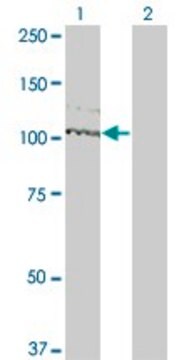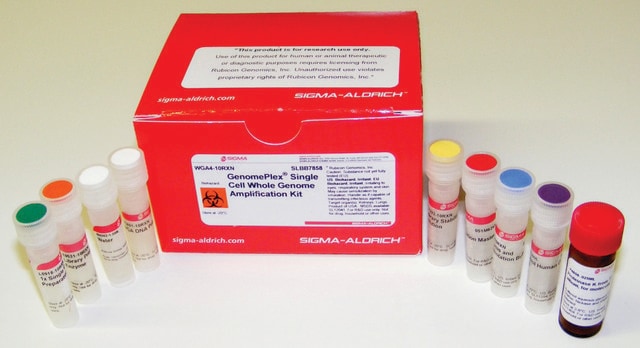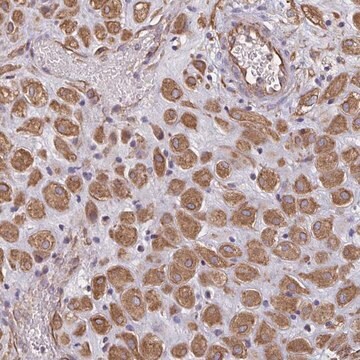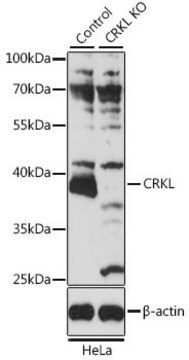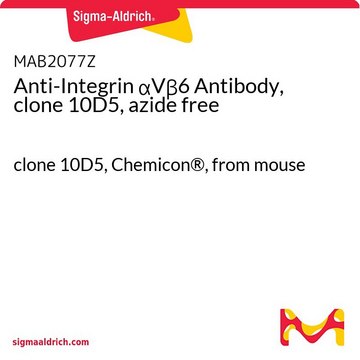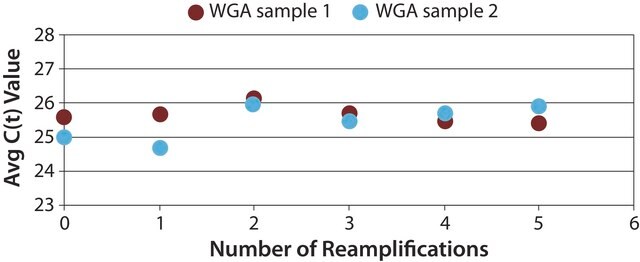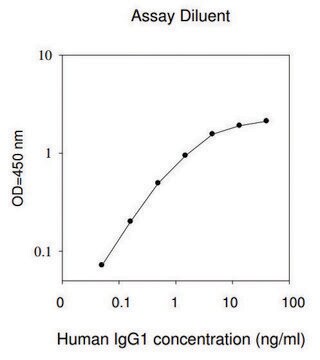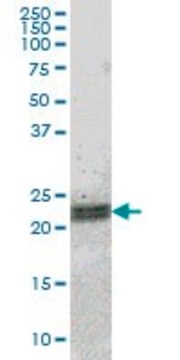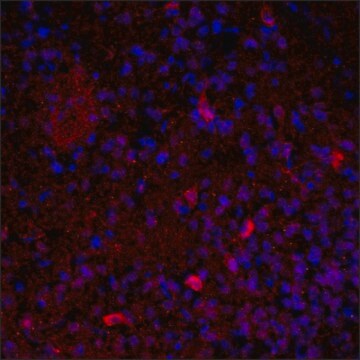SAB1412045
ANTI-KIT antibody produced in mouse
clone 2C3, purified immunoglobulin, buffered aqueous solution
Sinonimo/i:
C-Kit, CD117, KIT, PBT, SCFR
About This Item
Prodotti consigliati
Origine biologica
mouse
Livello qualitativo
Coniugato
unconjugated
Forma dell’anticorpo
purified immunoglobulin
Tipo di anticorpo
primary antibodies
Clone
2C3, monoclonal
Forma fisica
buffered aqueous solution
PM
antigen 36.63 kDa
Reattività contro le specie
human
tecniche
indirect ELISA: suitable
western blot: 1-5 μg/mL
Isotipo
IgG2bκ
N° accesso NCBI
N° accesso UniProt
Condizioni di spedizione
dry ice
Temperatura di conservazione
−20°C
modifica post-traduzionali bersaglio
unmodified
Informazioni sul gene
human ... KIT(3815)
Descrizione generale
Immunogeno
Sequence
PGKSDLIVRVGDEIRLLCTDPGFVKWTFEILDETNENKQNEWITEKAEATNTGKYTCTNKHGLSNSIYVFVRDPAKLFLVDRSLYGKEDNDTLVRCPLTD
Stato fisico
Non trovi il prodotto giusto?
Prova il nostro Motore di ricerca dei prodotti.
Raccomandato
Codice della classe di stoccaggio
10 - Combustible liquids
Punto d’infiammabilità (°F)
Not applicable
Punto d’infiammabilità (°C)
Not applicable
Certificati d'analisi (COA)
Cerca il Certificati d'analisi (COA) digitando il numero di lotto/batch corrispondente. I numeri di lotto o di batch sono stampati sull'etichetta dei prodotti dopo la parola ‘Lotto’ o ‘Batch’.
Possiedi già questo prodotto?
I documenti relativi ai prodotti acquistati recentemente sono disponibili nell’Archivio dei documenti.
Il team dei nostri ricercatori vanta grande esperienza in tutte le aree della ricerca quali Life Science, scienza dei materiali, sintesi chimica, cromatografia, discipline analitiche, ecc..
Contatta l'Assistenza Tecnica.